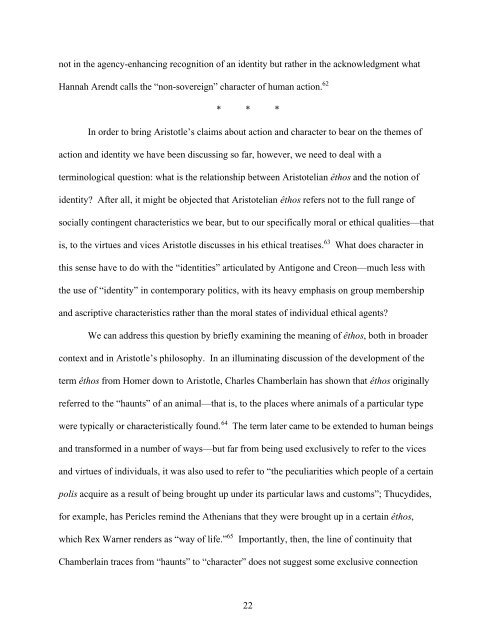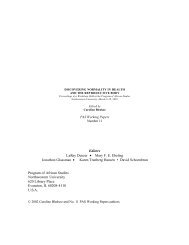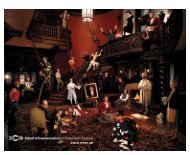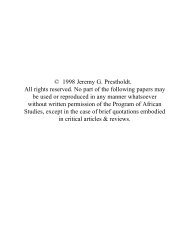TRAGIC RECOGNITION: ACTION AND IDENTITY IN ANTIGONE ...
TRAGIC RECOGNITION: ACTION AND IDENTITY IN ANTIGONE ...
TRAGIC RECOGNITION: ACTION AND IDENTITY IN ANTIGONE ...
Create successful ePaper yourself
Turn your PDF publications into a flip-book with our unique Google optimized e-Paper software.
not in the agency-enhancing recognition of an identity but rather in the acknowledgment what<br />
Hannah Arendt calls the “non-sovereign” character of human action. 62<br />
* * *<br />
In order to bring Aristotle’s claims about action and character to bear on the themes of<br />
action and identity we have been discussing so far, however, we need to deal with a<br />
terminological question: what is the relationship between Aristotelian êthos and the notion of<br />
identity? After all, it might be objected that Aristotelian êthos refers not to the full range of<br />
socially contingent characteristics we bear, but to our specifically moral or ethical qualities—that<br />
is, to the virtues and vices Aristotle discusses in his ethical treatises. 63 What does character in<br />
this sense have to do with the “identities” articulated by Antigone and Creon—much less with<br />
the use of “identity” in contemporary politics, with its heavy emphasis on group membership<br />
and ascriptive characteristics rather than the moral states of individual ethical agents?<br />
We can address this question by briefly examining the meaning of êthos, both in broader<br />
context and in Aristotle’s philosophy. In an illuminating discussion of the development of the<br />
term êthos from Homer down to Aristotle, Charles Chamberlain has shown that êthos originally<br />
referred to the “haunts” of an animal—that is, to the places where animals of a particular type<br />
were typically or characteristically found. 64 The term later came to be extended to human beings<br />
and transformed in a number of ways—but far from being used exclusively to refer to the vices<br />
and virtues of individuals, it was also used to refer to “the peculiarities which people of a certain<br />
polis acquire as a result of being brought up under its particular laws and customs”; Thucydides,<br />
for example, has Pericles remind the Athenians that they were brought up in a certain êthos,<br />
which Rex Warner renders as “way of life.” 65 Importantly, then, the line of continuity that<br />
Chamberlain traces from “haunts” to “character” does not suggest some exclusive connection<br />
22














